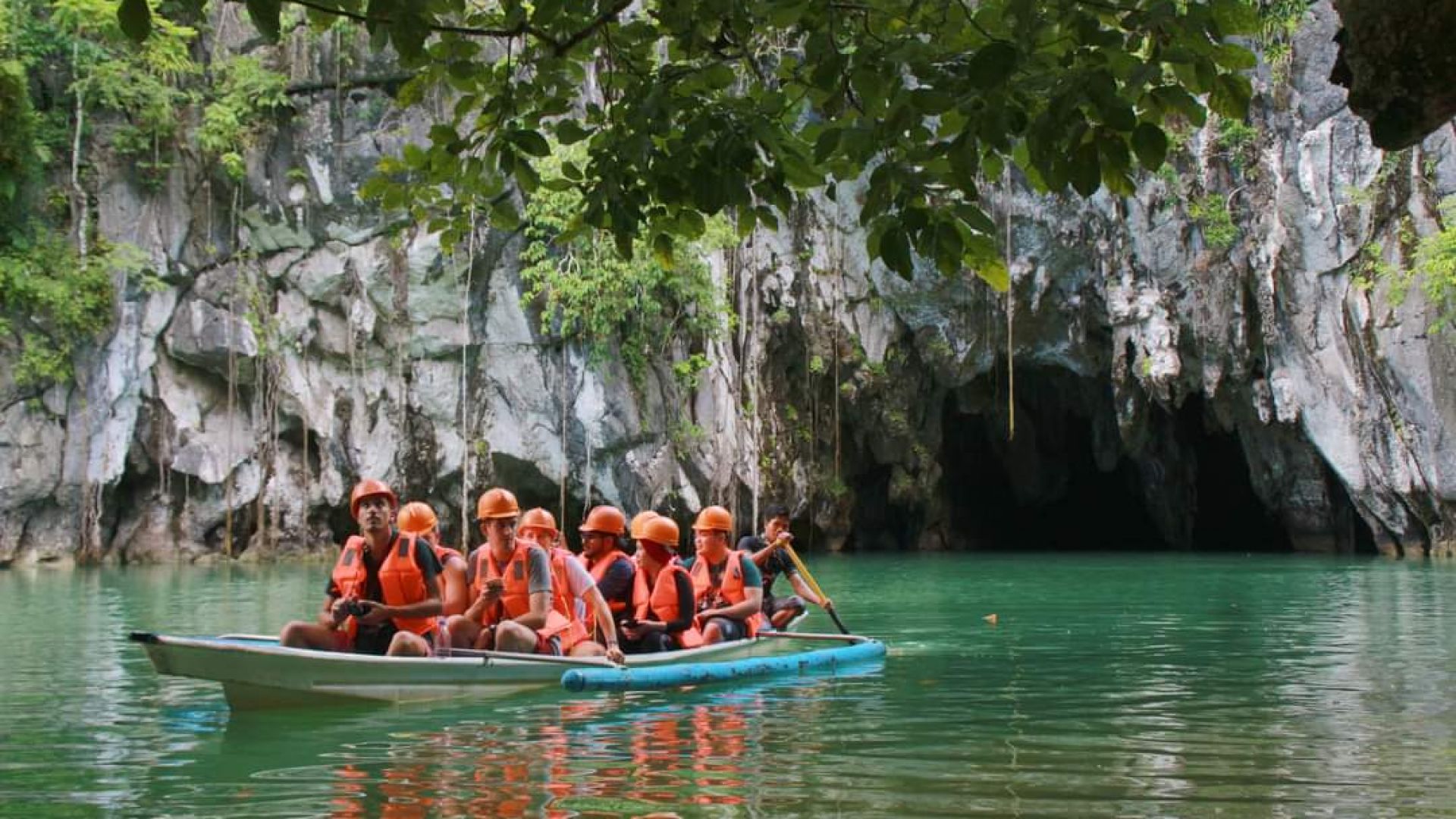Puerto Princesa: Paradise Regained
Puerto Princesa: Paradise Regained

The Royal Treatment at Puerto Princesa
With safety protocols firmly enforced, Puerto Princesa is poised to again welcome tourists with open arms. In recent years, the highly urbanized city and tourist haven has been paralyzed by the Covid-19 pandemic, then pummeled by Typhoon Odette. But it is now on the road to recovery—as spectacularly as its scenic, romantic and gastronomic attractions.
“The tourism industry is the lifeblood of Puerto Princesa, along with agriculture. Almost 15,000 people directly or indirectly benefit from tourism. In varying degrees, most of the recent construction and development projects are related to tourism: hotel-building, parks, cruise-ship ports, street lights, roads and many more. Unfortunately, some of these have been on hold since the onset of the pandemic,” discloses Demetrio “Toto” Alvior Jr., the city tourism officer.
The Royal Connection

Puerto Princesa, the capital of postcard-perfect Palawan, sprawls across 253,982 hectares of captivating coastlines stretched over 106 kilometers. Due to its strategic geographical location, it has sufficient depth to allow ships of all sizes to anchor, earning a reputation as a “Princess of Ports,” or in Spanish, “Puerto Princesa.”
There’s no contention that Puerto Princesa is one of the country’s greatest pleasures. A holiday destination universally beloved by travelers, beach-combers and trekkers; a bustling business center with a rural allure; a provincial vibe with modern amenities; and a clean and green city recognized for its lush forests, fresh air and frontier character.
Rising Above Covid-19

The city of Puerto Princesa has been struggling to get to its feet since the outbreak of Covid-19 in early 2020. The lack of tourists, which is the main industry, has forced hundreds of tourism-related businesses to close, leaving thousands of tourism workers unemployed.
“The public-health crisis forced them to find alternative sources of income, which was made more difficult because of the restrictions of movement due to several lockdowns,” Mr. Alvior reveals. “One factor of low tourist arrivals is the fluctuating number of Covid cases, which in turn affects the determination of quarantine requirements and national government intervention policies.”
Today, Puerto Princesa is experiencing record lows in terms of economic losses, losing around P5 billion a year for the past two years from potential tourist receipts.
“The City Tourism Department has been strengthening its social media campaigns to encourage local tourists to visit local attractions, in a bid to boost much-needed revenues to the ailing tourism sector,” a cautiously optimistic Mr. Alvior says. “We have one important wish in the City Tourism Department, and that is to prioritize the aids for the Typhoon Odette-affected tourism industry here.”

The goal is to regain the city’s glory as an eco-tourism capital. “Our 2022 goals are full restoration of all the tourist attractions affected by Typhoon Odette such as the completion of the construction of the cruise-ship port and other man-made tourist attractions. There will be wide, extensive and aggressive promotions of Puerto Princesa to the local and international market.”
The Last Frontier
Puerto Princesa has a plethora of tourist spots. But many tourists who visit the city put the Puerto Princesa Subterranean River National Park, one of the New7Wonders of Nature, on top of their list. As the jump-off point for exploring the world-famous Tubbataha Reef, the city also hosts a fair share of adventurers.
“Since the Covid-19 outbreak, we have never ceased to hope that the future will be better. This year 2022 is no different. And while what we want is a full recovery, we cannot afford to be careless when taking big steps. As we begin to truly understand the gravity of the situation, we also come to realize that our moves must be consistent with the bigger picture such as the national situation,” Mr. Alvior says.
Since February 10, the city has been happily welcoming more visitors once again, hoping that the arrival numbers will soon be back to pre-pandemic levels. In this initiative, the tourism department shares the privilege on with the private sector.
“While the government is the administrator of the State, the private sector is the bloodline. The government and the private sector are two inseparable factors for Puerto Princesa to prosper, and more importantly, to recover,” Mr. Alvior says. “The key to recovery is to enable and support the private sector to keep or resume their business operations. When it comes to the city’s biggest partners, apart from government agencies, it is the collective impact of small-business operations.”
Puerto Princesa may be “The Last Frontier,” but the City Tourism Department is confident that it will always be the first choice of every traveler.








